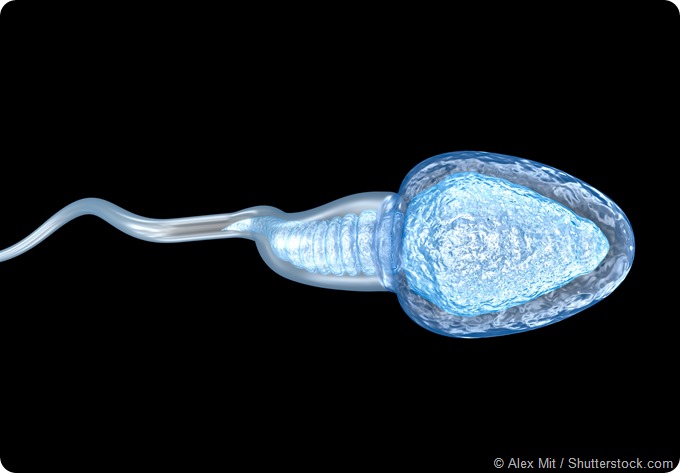A low sperm count, or oligospermia, is a condition in which the concentration of sperm in the ejaculated semen is too low to promote the natural fertilization of an ovum. It is usually defined as a sperm count below 20 million/ml of semen, though more recent research puts the threshold at below 15 million.

Male factor infertility is found in about 7 percent of humans, and is commonly due to sperm deficiencies. It is the cause of male infertility in a third of couples seeking assisted reproductive techniques in order to conceive. It may have multiple causes in the reproductive and non-reproductive systems, but most cases are idiopathic.
Causes
Some common etiologies include:
- Low androgen levels as in hypogonadism
- Genetic disorders such as Klinefelter’s syndrome
- Testicular trauma
- Undescended testes in infancy
- Post-inflammatory testicular atrophy
- Obstruction in the testicular spermatic ducts following damage, disease, inflammation, or congenital obstruction
- Previous testicular surgery
- Use of testosterone, anabolic steroids, chemotherapy, and certain antibiotics or antidepressants which can reduce the sperm count
- Lifestyle or environmental factors including:
- Sexually transmitted infections caused by chlamydia, gonorrhea or prostatitis
- Increased local temperature of the testes due to, for instance, unduly tight innerwear
- Alcohol or drug abuse
- Smoking
Diagnosis
Oligospermia is diagnosed on the basis of a semen analysis, in which the quantity and quality of the sperm in a semen sample collected by the man is analyzed in a laboratory. If the results are deemed abnormal, a repeat test is performed three months later for confirmation.
Home kits for sperm counting are available but much research on their accuracy is lacking. Moreover, other sperm parameters are not checked, including sperm morphology and motility, both of which are also important factors affecting male fertility. For this reason they may be falsely reassuring and may delay treatment when required. They may also give falsely low counts in some cases.
Non-obstructive azoospermia or severe oligospermia (less than 5 million/ml) can be associated with increased gonadotropin levels and small, soft testes. Genetic disorders are present in many such cases, including:
- Cystic fibrosis transmembrane conductance regulator (CFTR) gene mutations leading to congenital absence of the vas
- Chromosomal anomalies
- Y chromosome microdeletions (YCMD)
Treatments for low sperm count
Individuals with borderline sperm counts may still successfully inseminate their partners. Some lifestyle modifications, and increasing the frequency of intercourse to once in two or three days, especially around the time of the female’s ovulation, are advisable to increase the chances of conception.
Other options are available for those who cannot conceive, such as in vitro fertilization (IVF). This involves retrieval of oocytes from the woman and mixing them with sperm from the man outside the woman’s body to achieve fertilization, following which the embryo is cultured and returned to the woman’s uterus within a few days to implant and grow into a pregnancy.
Intracytoplasmic sperm injection (ICSI) is a more recent IVF technique using a single sperm cell which is injected into the cytoplasm of the oocyte to directly fertilize it, following which normal IVF procedures are implemented. It bypasses the male’s low sperm count instead of treating it, and is appropriate for men with no or very few sperm cells in their semen, or if the sperm cells are dead or immotile.
Donor insemination is the use of sperm from another man to fertilize a woman’s oocytes, either by artificial insemination or via IVF, with the consent of both partners. It is most commonly used when the man has a genetic disorder which could be transmitted to the offspring.
Gonadotropin stimulating medications or gonadotropin replacements may be used to increase the sperm production if the man is hypogonadic. They are not useful in idiopathic male infertility.
References
- https://www.ncbi.nlm.nih.gov/
- https://medlineplus.gov/maleinfertility.html
- http://www.nhs.uk/Conditions/low-sperm-count/Pages/Introduction.aspx
- https://www.ncbi.nlm.nih.gov/pubmed/23472228
- https://www.ncbi.nlm.nih.gov/pmc/articles/PMC4708302/
Further Reading
Last Updated: Dec 29, 2022